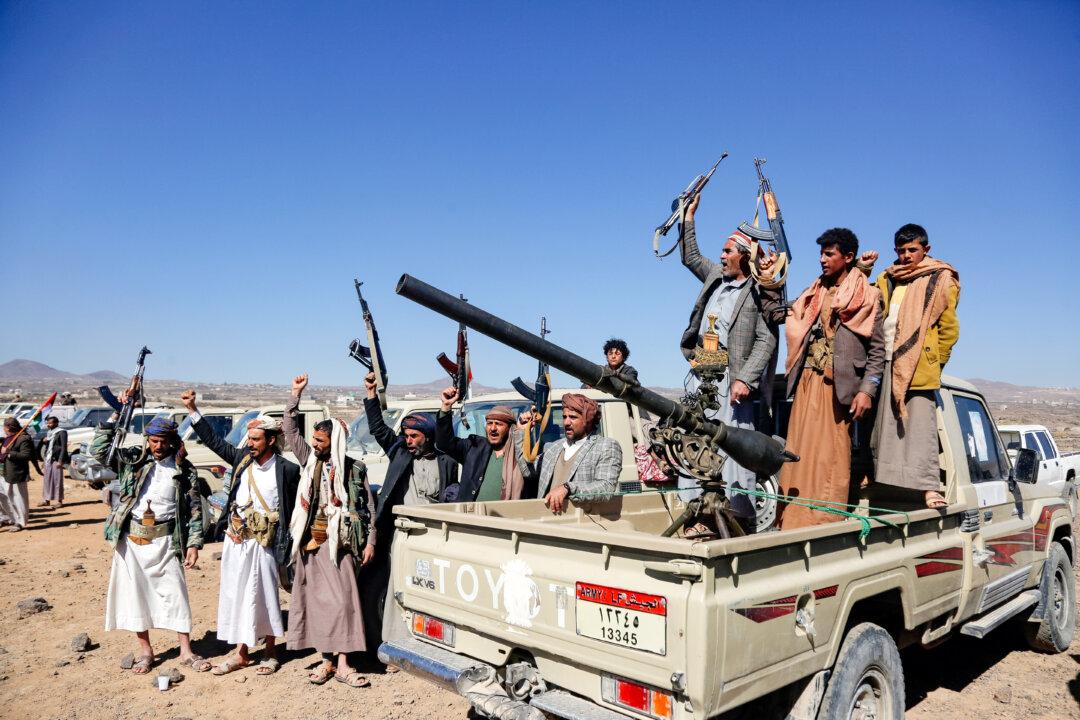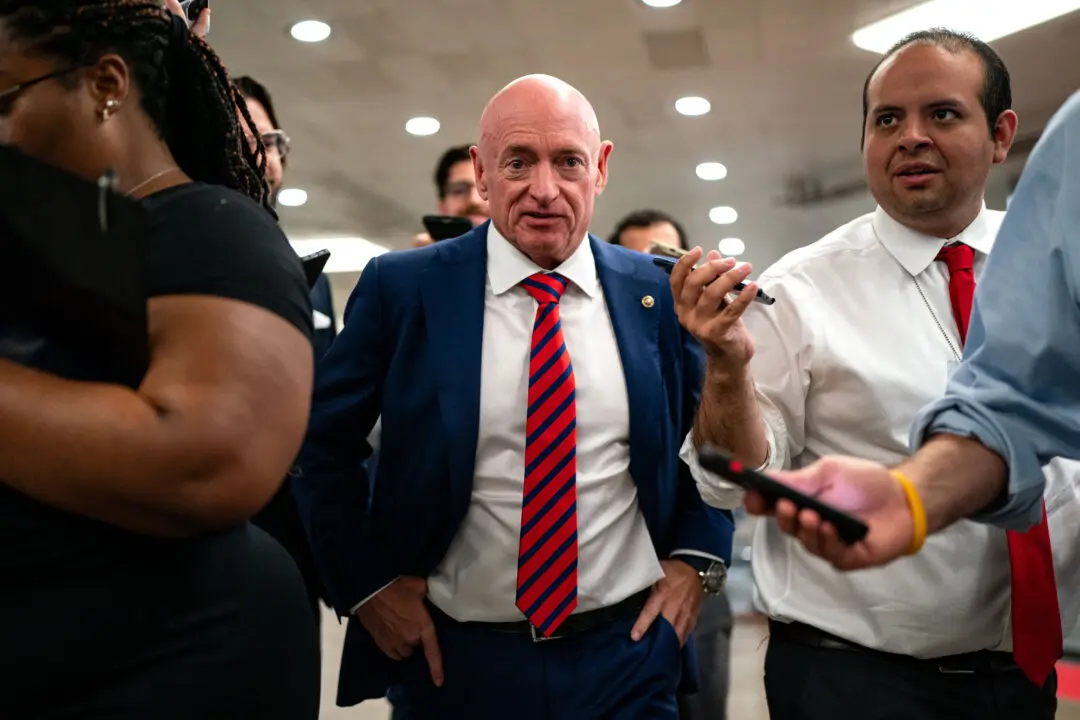President Joe Biden’s administration is looking for ways to de-escalate the ongoing Red Sea standoff with Yemen’s Houthi rebel faction and may revoke a terror designation placed against the rebels if they stop attacking commercial shipping going through the waterway.
The Houthis, also known as Ansar Allah, are a Shiite Islamic faction that has intermittently fought with Yemen’s internationally recognized government and its Saudi Arabian allies for years.





